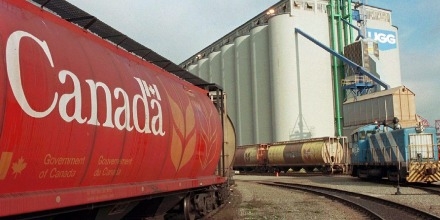Nutrien has donated $15 million to the University of Saskatchewan’s “Be what the world needs” campaign.
A large portion of the gift will establish the Nutrien Centre for Sustainable and Digital Agriculture inside the current College of Agriculture and Bioresources building. It will focus on research training and innovative technologies that accelerate farming into the digital age. A state-of-the-art lecture theatre will also be established in the College of Engineering. The donation will also “establish the Nutrien Future Fund for the college, provide scholarships for AgBio students, and fund Indigenous and community engagement initiatives via the kihci-okâwîmâw askiy (Great Mother Earth) Knowledge Centre”, according to a news release on the USask website.
The fundraising goal of the campaign is $500 million and the donation puts it at 90 per cent of the goal.
“It is the largest single contribution to date,” says USask President Peter Stoicheff, “It is from the largest corporate donor in the history of the University and it will be a game-changer for the University, all thanks to our partners at Nutrien.”
“We need our talent pipeline to be full and the University of Saskatchewan is an important partner in that regard,” said Ken Seitz, President of Nutrien. “We need research & development in sustainable agriculture and farming practices and the University of Saskatchewan is a wonderful partner in that regard.”
Graduate student Sarah van Steenbergen is a PhD student in the College of Agriculture and Bioresources, studying in the agronomic crop imaging lab. She noted the focus of her research is on “wide-scale yield forecasting across Canada for spring wheat as well as integrating climate models to see how that production may change under different climate change scenarios.” She spoke about the positive impact of scholarships from companies, such as Nutrien, in the news release.
“I have been very fortunate to receive several scholarships while studying at the Department of Plant Sciences. With three children in daycare, that support has really helped me alleviate some of the financial stress associated with childcare costs as well as being a full-time university student.
Nutrien’s support demonstrates that sustainable agriculture and sustainable production is a priority here in Canada and particularly Western Canada and it makes me quite excited to see the career opportunities that will be available as I finish my PhD and look to make a larger contribution to the industry,” she said.
Angela Bedard-Haughn, Dean of the College of Agriculture and Bioresources at USask, says the Nutrien Centre is ready to be utilized.
“The Centre will really allow us to jump start the work we’ve been doing in the digital agriculture space…we’ve just hired five new faculty members from that space and this will allow us to (give) them a really great jump start on their careers, establishing collaborations with industry and with other faculty across campus and beyond to ensure they got all the resources they need to have impact right out of the gate.” Bedard-Haughn said.
She also says the “Great Mother Earth” Knowledge Centre will be a place to host “community engagement workshops to bring folks in (to) learn more about Indigenous land management challenges as well as opportunities for the communities to engage with University faculty who can support their needs” including “efforts to advance their work in Indigenous agriculture and advance in their various aspects of land management.”



